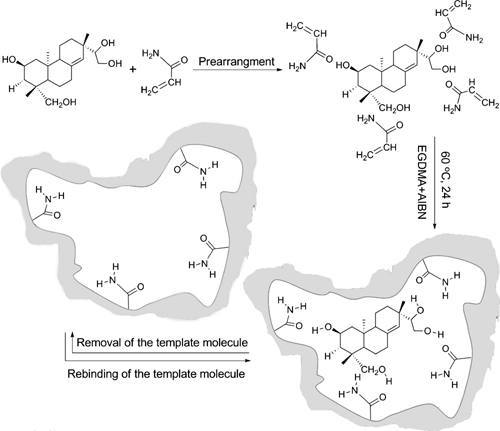Molecularly imprinted polymers (MIPs) have been widely used in artificial antibodies, catalysis, drug delivery, solid-phase extraction, chromatography, sensors, and sorbent assays due to their excellent properties and selectivity for a target compound or a group of compounds.
The aerial parts of the herb Siegesbeckia pubescens are extensively used in TCMs for their antiinflammatory, antiallergic, cartilage protective, and wound healing properties. Its major active compound is kirenol. The extraction of kirenol from plants, however, is tedious and inefficient because of its poor affinity and selectivity to conventional separation materials.
Researchers from the Key Laboratory of Chemistry of Northwestern Plant Resources, Chinese Academy of Sciences, have synthesized a molecularly imprinted polymer for the extraction of a diterpenoid (kirenol) from S. pubescens herb extracts.
The MIP was prepared using a non-covalent imprinting method with acrylamide (AM) as functional monomers and ethylene glycol dimethacrylate (EGDMA) as a cross-linker in tetrahydrofuran porogen. The optimized molecularly imprinted solid-phase extraction (MISPE) procedure was applied to extract kirenol directly from the extracts of the aerial part of S. pubescens herb.
The MISPE is a useful tool for selective clean-up of the plant extracts, which showed excellent recovery of the template (80.9%) and is suited to routine use for extracting diterpenoids from S. pubescens herb.
The work has received support from the National Natural Science Foundation of China. The findings have been published in Talanta (Talanta 89 (2012) 505– 512).
Talanta (Talanta 89 (2012) 505– 512) Paper

Schematic representation of kirenol-MIPs. (Image by SHI Yanping et al.)

